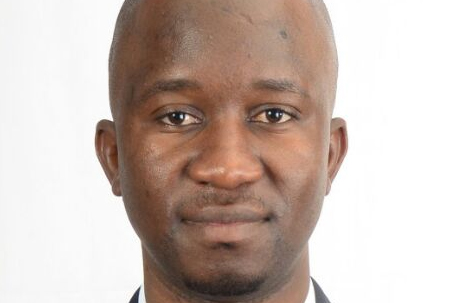
In today’s world, modern politics and socio-economic relations are primarily influenced by the dynamics of public communication. To convey an accurate message and brand image, public relations practitioners need to use relevant advocacy platforms to speak on behalf of their country and business institutions.
By Archie Mathibela
This is to showcase the best of their policies and cultivate a more progressive concept of a nation in transition but ready to engage with the rest of the world to empower its people. A unique opportunity availed itself through the continental African Public Relations Association’s conference recently.
The African Public Relations Association (APRA), hosted the 30th annual African Public Relations Conference from May 9 to 11 in Gaborone, Botswana, under the theme: “Representing Africa”. This year’s conference was about changing Africa’s narrative and telling the continental story exclusively through African lenses.
The indaba brought together more than 300 international speakers and facilitators in public relations, media, brand management, advertising, government and other marketing communications professionals from Africa and its diaspora, Europe and North America. Top moderators from global news networks CNN, BBC and Aljazeera facilitated the deliberations.
As part of its re-integration efforts, Zimbabwe, joined the fray to present a paper on deploying public relations strategies to advance Zimbabwe’s development agenda. This is a progressive storyline about Zimbabwe in the new dispensation and how the critical support of local, regional and international actors alike is in shaping messages to change negative perceptions.
African Union Commission head of communication Wynne Musabayana, writing in the 2018 Africa Communications Leadership Report featuring 50 communications experts from across Africa, says: “Good news instils hope and gives inspiration. Communication also helps to share experiences from different parts of the continent, one of the quick ways (being) to ensure that Africans tell their own stories while we work on unbalanced global media structures where Africans do not own global media outlets.”
The Zimbabwean story has of late become a topical issue and communicators need to lend their voice to the goodwill from government’s recent public relations efforts in the region and internationally to foster socio-economic integration and cooperation.
- Chamisa under fire over US$120K donation
- Mavhunga puts DeMbare into Chibuku quarterfinals
- Pension funds bet on Cabora Bassa oilfields
- Councils defy govt fire tender directive
Keep Reading
The role of the private sector is critical to bridge the gap at this juncture and taking part in APRA Botswana 2018 presented an opportunity for communicators to better equip themselves for the various challenges in the modern world that demand quick turnaround strategies that keep brands top of customers’ minds and reputations solid. The meet-up also featured plenary sessions, workshops and trending case studies. More so, with the conference’s major focus on storytelling as a public relations tool and a re-evaluating the ethics of the profession, with emphasis on the issues of fake news and alternative facts.
Further, Zimbabwe’s participation in the conference was an opportunity to reflect on the role of communication in achieving the continental vision and the strategic priorities of Africa’s framework for socio-economic and structural transformation — Agenda 2063.
It is imperative to monitor any “chatter” about Zimbabwe in the public domain outside our borders and to correct any misconceptions that reduce the country’s appeal to tourists, investors and human capital.
By restoring the facts about the Zimbabwean narrative, communications experts have a unique opportunity to restore unity, peace and dignity to the country, which are all necessary ingredients for sustainable development.
In changing the African narrative, the Zimbabwean government’s support and buy-in is important to mobilise support for programmes that advance national interests. As a communicator of a new Zimbabwean narrative, our involvement in APRA Botswana 2018 not only engendered goodwill, but promoted people-to-people educational and cultural exchanges, entrepreneurship, business development, civic engagement and international cooperation.
The African Public Relations Association is a non-governmental, non-profit organisation established to foster unity via interaction and exchange of ideas among public relations practitioners in Africa as a whole, and through communication, promotes social, political and economic integration on the continent.
The public relations Indaba offered a uniquely sustainable opportunity with a long-term positive impact. It offered a perfect blend of business and goodwill as delegates also exchanged notes on their home countries’ rich cultural heritage and business opportunities.
APRA Botswana 2018 also set the public relations agenda for the year and launches the continent’s economic resurgence which can only be achieved through pan-African collaborative initiatives that are tailored to address the pressing UN Sustainable Development Goals (SDGs) and aiding initiatives for economic growth.
The conference is endorsed by the top three global PR associations, namely, the International Public Relations Association (IPRA), International Communications Consultancy Organisation (ICCO) and the PR Global Alliance. Bringing the curtain down, the organisers, in partnership with the Holmes Report, will also host the second edition of the SABRE Awards Africa to showcase the best in public relations work from across the continent.
lArchie Mathibela is a PR and marketing consultant with Junechild Corporate Communications. He is a member of the Zimbabwe Institute of Public Relations (ZIPR) and earned his stripes in over 10 years working in the insurance and financial services, government legislature, telecoms, sustainable development and the arts and culture sectors.
He holds BA Hons and MA in English degrees from the University of Zimbabwe, a Diploma in Public Relations and a Post-Graduate Diploma in Marketing Management from the Institute of Marketing Management (IMM) in South Africa. Email: [email protected]











